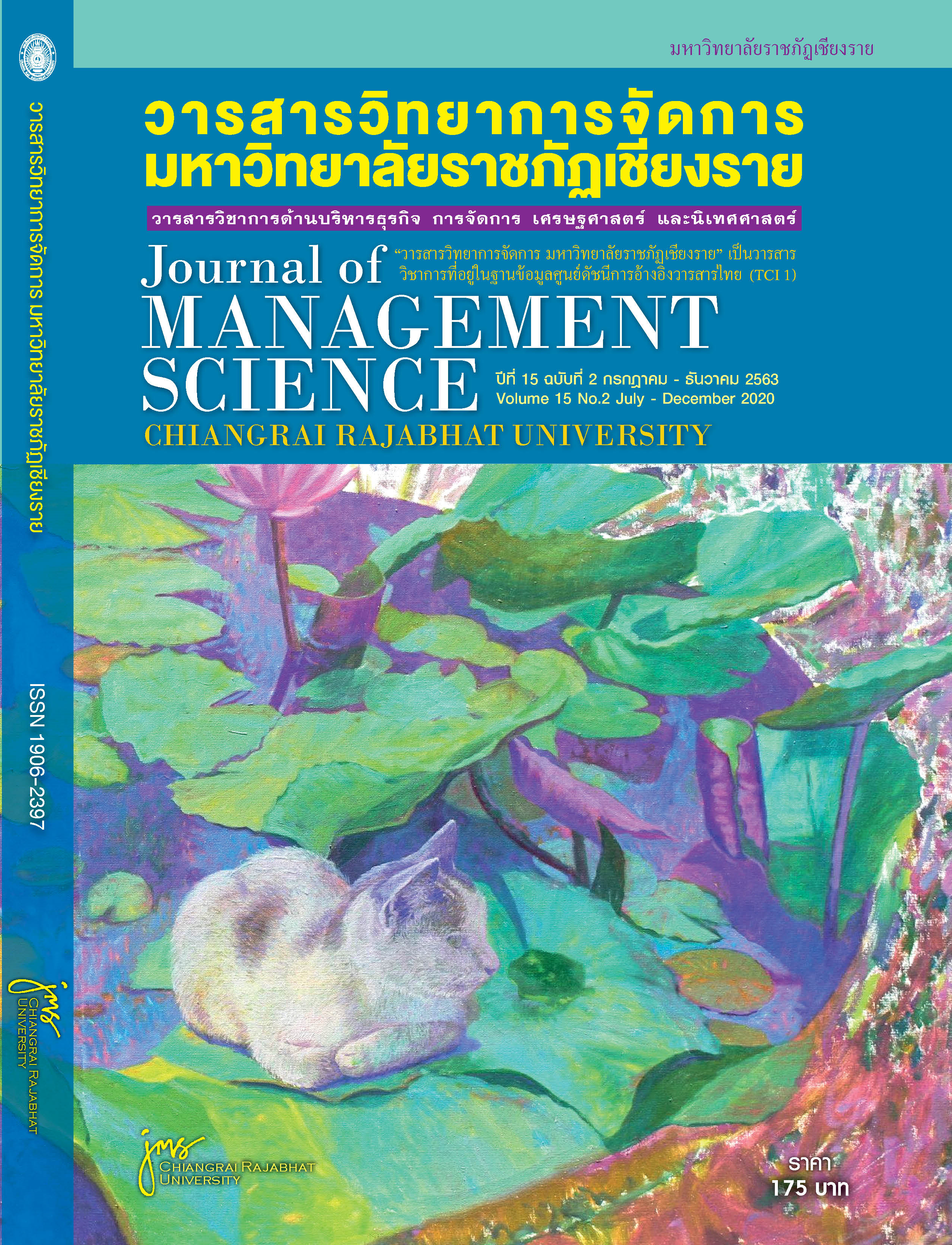Thai Media Roles in Nostalgic Situation of Thailand’s Migrant Workers
Main Article Content
Abstract
Considering the state of leaving home or living abroad, it is undoubtedly true that one must be concerned about family and friend in their homeland. A feeling of fear or apprehension, and the way to adapt oneself to new environment are the explanation of ‘nostalgic situation’ that this research article discusses. A link between Thailand’s migrant workers and Thai media are central to this investigation. The former is TV audience who, in this paper, is Burmese, Laotian, and Cambodian living and working permanently in Bangkok for a long period of time and has never been back to native country. The latter is TV program which is news and drama in particular. The informal interview individually with these migrant workers reveals that Thai TV programs have provided them with both pleasant and painful content. News about them vis-à-vis human trafficking, maltreatment, accident, serious injury or death in worksite are horrifying. In spite of that, drama appears to be enjoyable and serves as a learning source for Thai language and custom. The interview with Thai academic and media experts is also conducted. Finding the highlights that TV program which is produced especially for migrant workers is scarce. This problem results from the structure of Thai media industry, limited appreciation among Thai journalists towards cultural pluralism and The ASEAN Community. Consequently, making specific media more available for migrant workers seems to be practical resolution. Participation of all stakeholders and relevant agencies is also essential.
Article Details
Views and opinions expressed in the journal do not necessarily reflect those of the editors.
References
Chaipipat, Kulchada. Manager of Media Freedom Campaign Section, Southeast Asian Press Alliance (SEAPA). Interview on November 8, 2018. (in Thai).
Hautavanija, Pornvipa, Tuicomepee, Arunya, and Kotrajaras, Supapan. (2013). Cultural adjustment of Thai migrant workers: a qualitative study. KKU Research Journal HS (Graduate Studies). 1(1). 14-26. (in Thai).
Huston, Aletha C., et al. (1992). Big world, small screen: the role of television in American society. Nebraska : University of Nebraska Press.
International Organization for Migration. (2009). Let’s make the understanding of migrant workers. Bangkok :
The NGOs and International Organization for Migrant Workers. (in Thai).
Jan-aim, Sucha. (1999). General psychology. Bangkok : Thai Wattanapanich. (in Thai).
Jin. Cambodian labor. Interview on November 3, 2018. (in Thai).
Jongkitthaworn, Kavee. Thai-ASEAN media expert. Interview on October 31, 2018. (in Thai).
Noom, S. H. and Vergara, M. B. (2011). Acculturative stress, self-esteem, and coping among Burmese female migrant workers. Proceeding of the 3th International Conference on Humanities and Social Science; 2 April 2011. Songkla : Prince of Songkla University and The National Writers Association Malaysia.
Pan. Burmese labour. Interview on November 6, 2018. (in Thai).
Perakanya, Sangdaw, Charoenchai, Amporn, Thanasateangkool, and Piyabanditkul, Lukawee. (2005). Impact of migration on health and socioeconomic status of Thai labourers and their families from Phen district, Udon Thani province, KKU Research Journal (Graduate Studies). 5(2). 116-126. (in Thai).
Ratchapaksi, Chairat. The officer of Human Right Protection Section, Labour Protection Network (LPN). Interview on Novermber 6, 2018. (in Thai).
Sameng, Chhoeut. Cambopdian Labour. Interview on Novermber 1, 2018. (in Thai).
Savin-Baden, Maggi and Major, Claire Howell. (2013). Qualitative research: the essential guide to theory and practice. Abingdon, Oxon : Routledge.
Sri. Burmese labour. Interview on October 30, 2018. (in Thai).
Sukheeatta, Sunisa, Suksawat, Jirasuk, and Seansa, Niranath. (2018). The adaptation experience of Thai youths immigrated with their mothers to live in Stockholm, Sweden. Nakhon Phanom University Journal. 8(2). 10-16. (in Thai).
Sunpuwan, Malee and Niyomsilpa, Sakkarin. (2014). The survey of Thai public opinion towards Myanmar refugees and migrant workers: an overview. Nakhon Pathom : Institute for Population and Social Research, Mahidol University.
Thawong, Supoj. (2014). Foreign labour market of A-Kha ethic group in Chiangrai province with an effect on social safety nets. Journal of Social Academic of Rajabhat Chiangrai University. 7(1). 155-169. (in Thai).
The Office of Migrant Worker Administration. (2018). Statistical record of Thailand’s migrant workers of August 2018. Retrieved October 15, from https://www.doe.go.th/prd/alien/statistic/param/site/152/cat/82/sub/73/pull/sub_category/
view/list-label. (in Thai).
Thiang. Laotian labour. Interview on October 30, 2018. (in Thai).
Utamachan, Vipa. (2001). The impact of TV and radio cross-border transmission between Thailand and Laos. Bangkok : Chulalongkorn University Press. (in Thai).
Wangwiwattana, Sophit. Broadcast media expert. Interview on Novermber 2, 2018. (in Thai).
Wha. Laotian labour. Interview on October 30, 2018. (in Thai).
Wongmontha, Seree. (1980). Communication psychology. Thammasat Journal. 9(4). 2-16. (in Thai).


